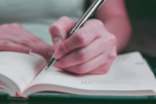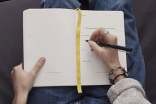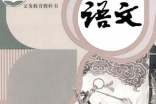篇一:《Keeping healthy英语作文》
Keeping healthy
All of us want to be healthy. What should we do to keep healthy? First, we should eat more fruit and vegetables and less meat every day. We shouldn’t eat too much meat or fast food. Second, it’s necessary for us to have enough sleep. It will keep you active during the day. Third, exercising often is also a good way to keep healthy. Such as running, swimming ,playing basketball and so on. Finally, we should keep our rooms clean and the air fresh all the time.
If you try to do that, you’ll be a healthier person.
篇二:《仁爱版八年级上Unit 2 Keeping Healthy Topic 3》
仁爱版八年级上Unit 2 Keeping Healthy Topic 3 Must we do exercise to prevent
the flu? Section A 教案
The main activities are1aand1c. 本课重点活动是1a和1c。
Ⅰ. Teaching aims and demands 教学目标 1. Learn some new words and phrases: hurry, hurry up, question, go ahead, spread, among, prevent, all the time, keep away
(from) 2. Go on learning the modal verbs should and must:
(1)What should we do to prevent it?
(2)We should keep our rooms clean.
(3)—Must we do exercise to prevent the flu?
—Yes, we must./No, we don’t have to./No, we needn’t.
3. Asking for and giving advice.
4. Talk about how to prevent the flu:
(1)We should exercise often to build us up. (2)We should wash our hands and change our clothes often.
(3)We had better not go to crowded places.
Ⅱ. Teaching aids 教具
图片/录音机/磁带/小黑板
Ⅲ. Five-finger Teaching Plan 五指教学方案
Step 1 Review 第一步 复习(时间:8分钟)
师生讨论如何保持健康,引出如何预防流感,导入新课。
1. (师生就健康话题进行讨论。注意应用情态动词should, shouldn’t, must, mustn’t,导入本
课的目标语言don’t have to, needn’t。) T: Boys and girls, we know keeping the school and classrooms clean is good for our health.
Then do you know how to keep healthy? You’d better say it with should/shouldn’t, must/
mustn’t, had better (not).
S1: We should have healthy eating habits.
S2: We mustn’t throw litter around.
S3: We mustn’t drink sour milk.
T: S4: (帮助学生用否定形式回答。)
T: We can have a good rest.
(板书并讲解。)
Must we go to …?
Yes, we must./No, we don’t have to. / we needn’t.
S5: We shouldn’t exercise on an empty stomach.
S6: We should have enough sleep.
S7: We should brush teeth twice a day.
S8: We shouldn’t read in the sun.
T: What else should we do to keep healthy? Please make some sentences with had
better.
S9: You’d better go to bed before nine o’clock in the evening.
S10: We had better not play sports right after meals.
…
2. (通过谈论如何保持健康,引出如何预防流感这个话题,可适当用汉语解释,导入新课。)
T: Good habits can help us to keep healthy and bad ones can cause diseases. There is a
(板书,并要求学生掌握。)
spread, among
T: The flu is a serious disease, but we don’t have to be afraid of it. We can do something
Step 3 Consolidation 第三步 巩固(时间:7分钟)
完成1a和1b,使学生熟悉目标语言。
1. (再放1a录音,并让学生跟读,注意模仿语音语调。然后完成1b,并以问答形式巩固。) T: Listen to1aagain and repeat. Pay attention to the pronunciation and intonation. Then
finish 1b. Ask and answer in pairs to check Dr. Li’s advice.
Example:
S1: What should we do to prevent the flu?
S2: We should do exercise often. We shouldn’t go to crowded places …
2. (学生自读1a后,四人一组练习对话。然后脱离课本,根据黑板上的关键词,表演出来。)
T: Read1aby yourselves, then practice it in groups of four. You can look at your books at
first. Then act out the dialog according to the key words on the blackboard.
Step 4 Practice 第四步 练习(时间:10分钟)
完成1c和2。通过编对话,使学生进一步掌握本课的目标语言。 1. (完成1c,重点训练don’t have to/ needn’t的用法。练习本课目标语言。)
T: Let’s do 1cusing the information in 1b. First read the dialog, and pay attention to the
target language don’t have to/needn’t.
2. (先师生问答,然后由学生两人一组练习。)
T: Now, I ask, you answer, then practice in pairs.
Example:
T: Must we finish homework on time?
S1: Yes, we must.
T: Must we finish it now?
S2: No, we don’t have to.
S3: No, we needn’t.
3. (看2中的图片,讨论怎样预防流感。)
T: Look at the pictures in 2, and discuss what we should do to prevent the flu.
(讨论几分钟后,要求学生完成2里面的练习。提示学生注意should, had better, must的
用法。)
T: Follow the examples to make dialogs using the sentence patterns:“We should…/We
had better …/We must …”
Example:
Dialog 1
A: What should we do to prevent the flu?
B: We should do more exercise.
Dialog 2
A: What should we do to prevent the flu?
B: We should go to see a doctor.
Dialog 3
A: What should we do to prevent the flu?
B: We must keep away from crowded places.(教师可帮助学生回答。)
(学生小组练习之后,核对答案。教师可以请几组同学到讲台前为大家表演。)
Step 5 Project 第五步 综合探究活动(时间:7分钟)
通过创设情景,分角色表演和写短文,提高学生综合运用本课所学语言知识的能力。
1. (四人一组做一个采访。一人扮演记者,其他三人扮演医生。记者采访如何预防流感,医生回答记者的提问。评出优胜组。)
T: Work in groups of four. One acts as a journalist. The others act as doctors. The
journalist asks how to prevent the flu. The doctors answer the journalist’s questions. Then act out in the front and we will decide which group is the winner at last.
2. Homework:
写一篇小短文来说明如何预防流感。
板书设计:
Must we do exercise to prevent the flu?
Section A
hurry up Flu is spreading quickly among people these days.
go ahead We should exercise often to build us up.
do exercise We had better not go to crowded places.
crowded places Must we do exercise to prevent the flu?
keep away (from) Yes, we must./No, we don’t have to./No, we needn’t.
篇三:《Unit 2 Keeping healthy知识点》
Unit 2 Keeping healthy知识点
Topic 1 You should brush your teeth twice a day.
一、重点短语
1. have a cold/a toothache /a fever/a cough/a backache/a stomachache/a sore throat /the flu /sore eyes
感冒/牙疼/发烧/咳嗽/背疼胃疼/咽喉发炎/流感/眼疼 2. have a (bad/terrible) cold 患重感冒 3. see a dentist/doctor看牙医、看病 4. take a rest=have a rest 休息 5. not read for too long 不要看书太久
6. boiled water 开水 7. stay in bed 躺在床上 8. have a good sleep 好好睡一觉 9. feel terrible 感觉难受 10. day and night 日日夜夜 11. You`d better=You had better 你最好…
12. much better 好多了 13. go to see a doctor 去看病
17. lie down 躺下
18. look after=take care of 照看,照顾
19. brush teeth 刷牙
20. have an accident 发生一次意外/事故
21. don`t worry 别担心 22. worry about 担心
23. nothing serious 没什么严重,没什么大碍
24. thank you for 因…而感谢你 25. buy…for… 为…买…
14. take /have some medicine /pills 26. not…-until…直到…才… 吃药
15. take…to… 把…带到… 16. Send…to…送某人去…….
27.both…and… -和…都是—- 28.take some cold pills 吃感冒药 29..plenty of 许多,大量
二、重点句型
1. What`s wrong with you/him/her?你/他/她怎么了? 同一句:What`s the matter with——-? What`s the trouble with——?
2.You should see a dentist.你应该去看牙医。这是一种表达建议的句子。还可以用以下句式: you`d better(not)——-how /what about——–why not/don`t you ——–
3.I`m sorry to hear that.听到这个消息我很难过。这是表示同情别人的句子。 4.——Shall I take you to the hospital?我送你去医院吧? ——-No,thank you.不用,谢谢。 Shall I do—-需要我做——-吗? take sb to———–把某人送到某地
5Michael had an accident yesterday.昨天迈克发生了事故。 had an accident发生了事故
6.Michael`s friends bought some chocolate for him .迈克的朋友给他买饿一些巧克力。
buy sth for sb.双宾语的运用。使用双宾语时,在人宾前需要使用介词,有时用“to”有时用“for ”,这与动词本身有关,表示动词的方向,多用“to”,表示动词的目的,多用“ for ”
give sth to sb. pass sth to sb. bring sth to sb. take sth to sb. cook sth for sb. buy sth for to sb .
7.——but I couldn`t read them until today.但是直到今天我才读了它们。 not —-until直到——才——-until 在肯定句动词一般用延续性动词,在否定
句中动词一般为短暂性动词。如:
He will wait for his father until ten o`clock.他将等他父亲一直到10点钟。 He won`t leave until his father comes.他直到他父亲回来才离开。 三、语法学习
1、 had better 的形式和用法
1) 固定短语had better具有情态意义,也可以看作情态动词。译为“最好”,它只有一种形式,没有人称和数的变化,后常跟动词原形,是给人提出建议的一种方式。如:
You had better go to see the doctor你最好去看医生。
You`d better eat a lot of fruit and drink plenty of water.你最好多吃水果,多喝水。
2)Had better的否定结构为 had better not。如: You`d better not eat hot food你最好别吃辛辣的食物。 You`d better not work today.你今天最好别工作。 2、
shall的用法
1) 作助动词时,英式英语中表示将来,可与第一人称连用,但在口语中所有人称都用will。如:
This time next week I shall/will be in New York.下周这个时候我就在纽约了。 拄:美语则不管什么人称,一律用will。
2)作情态动词时表征询意见,用于第一人称的疑问句中。如: Shall Itake you to the hospital?要不要我带你去医院? What shall we do this weekend?这个周末我们要作什么呢?
四、交际用语
(一)询问病情
What's wrong/the matter/the trouble?有什么不舒服? How are you feeling now?你现在感觉怎么样? Do you have a cold?你得感冒了吗? (二)诉说病情
1.I feel terrible./I'm feeling terrible.我感到难受 2.I have a headache/stomache/…我头疼/肚子疼…… 3.I can't sleep well at night.我晚上睡不好觉 4.I cough day and night.我日日夜夜地咳嗽。
5.But my left leg hurts when I move it.但是当我移动时,我的左腿疼。 (三)表示同情
1.I'm sorry to hear that.听到这事我很难过 2.That's too bad.那太糟了 3.Bad luck.倒霉 (四)表达建议
1.you'd better (not) do sth最好(不)做某事 2.You should/shouldn't do sth 3.Shall I take you to the hospital?
Topic 2 I must ask him to give up smoking
一、重点短语 1. look tired
2. watch a soccer game on TV 3. stay up late熬夜 4. be bad for对——有害 5. be good for对——有益
6. too much太多,过分 7. do morning exercises做早操 8. keep long fingernails留长指甲
9. go to school without breakfast不吃早餐去上学
10. have a bath洗澡
11. take a fresh air呼吸新鲜空气 12. read —-about—读关于——- 13. Keep you active使你保持精力旺盛 14. ask sb to do叫某人做某事 15. give up放弃
16. read in the sun在太阳底下看书 17. throw litter around乱扔垃圾 18. on grass在草坪上 二、重点句型
19. put——into——把——-放进—– 20. Play sports right after meals饭后立即运动
21. eat bad food 吃变质食物
22. keep the air clean and fresh保持空气清新
23. wash hands before meals饭前洗手 24. potato chips炸薯条
1. Staying up late is bad for your health.熬夜有害健康。
1) stay up late熬夜
2) be bad for对——–有害。类似的短语还有: be good for—对——有好处 3) staying up late is—动名词作主语。当我们需要一个动词充当主语时,常用此动词的动名词(即doing)形式。如:
Playing basketball is good for your heath.打篮球对你的身体有好处。 Reading in bed is bad for your eyes.躺在床上看书对眼睛有害。 Swimming is my hobby.游泳是我的爱好。
2. It will keep you active during the day.它会使你在白天保持活力。
keep sth/sb .+adj.保持某物/某人在某种状态。如: keep your fingersails clean.保持你的指甲干净。 keep our streets clean.让街道保持干净。
3. Walking is good exercise and it is necessary for good health. 散步是很好的锻炼,它是
身体健康必不可少的。
be necessary for—-对——–来说是必不可少的 如:
Sunshine is necessary for our life.阳光对于我们的生活来说是必不可少的。
篇四:《Unit 1 Keeping Healthy》
Unit 1 Keeping Healthy
一. 重点单词及常用词汇:
1.Eat too much candy 2.go to bed eary
3.Eat too much meat 4. exercise every day
5.Drink milk every day 6. drink too much juice
7.Wash hands before eating 8. eat with dirty hands
1.吃太多的糖果 2.去睡觉早 3.吃太多的肉 4.每天运动 5.每天喝牛奶 6.喝太多果汁 7. 饭用前洗手 8. 用脏手吃饭 Always总是 ,before 在…之前, stomachache, headache, toothache 肚子痛 头痛 牙痛 many(形容词)用在可数名词之前。 many friends
much(形容词)用在不可数名词之前。much candy,much juice{keeping,healthy}.
二. 重点句型:
1.What
’s wrong? 2.I’ve got a…
.
3.What should
4.I should(shouldn’t ) You should(shouldn’t )
He should( shouldn’t) she should( shouldn’t)
We should( shouldn’t) they should( shouldn’t) 1.什么是错的? 2.我有.…
3.我该怎么办?我们应该做什么?
4.我应该(不应该)你应该(不应该)
他应该(不应该)她应该(不应该)
我们应该(不应该)应该(不应该)
5.频度副词:{keeping,healthy}.
频度副词的位置:
I
版权声明
本站文章收集于互联网,仅代表原作者观点,不代表本站立场,文章仅供学习观摩,请勿用于任何商业用途。
如有侵权请联系邮箱tuxing@rediffmail.com,我们将及时处理。本文地址:http://www.15033.cn/chuzhong/cezw/246524.html








